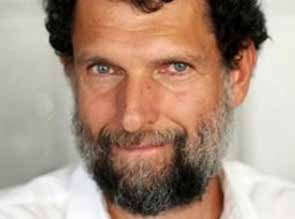(THIS ARTICLE IS MACHINE TRANSLATED by Google from Norwegian)
4. On March, a Turkish court approved charges against 16 leading civil society figures for their alleged role in the Gezi Park demonstrations in 2013. The charges are a new low in an already shameful record of human rights violations committed by the Turkish government.
The demonstrations in 2013 began as an environmental case with the intention of preventing the implementation of the government's plans to remove a small park in the center of Istanbul. Although the demonstrations ended up triggering a larger wave of protests against President Recep Tayyip Erdogan's increasingly authoritarian regime, they were largely peaceful. The Turkish Constitutional Court has also issued several orders confirming the demonstrations were legal.
Nevertheless, Erdogan's government insists that the protests must be regarded as an attempt at a coup d'état. A couple of weeks ago, most of the alleged leaders of the protests were taken into custody and questioned, then released without charge, but subject to legal supervision. The prosecutors, on the other hand, require lifetime sentences for all 16 defendants. Among them is Osman Kavala, a well-known 61-year-old businessman and philanthropist who has been incarcerated since October 2017. It is only now that he has been indicted. I know Kavala personally; he is a man of calm appearance and runs a company he inherited from his father, who has among other things invested in one of Turkey's largest telephone companies.
At the time of writing, the number of imprisoned journalists in Turkey is the highest in the world.
In his philanthropy, Kavala has been concerned with the rights and culture of minorities. Among the projects he has initiated and funded is a cultural center in the southeastern city of Diyarbakır. According to Kavala's philanthropic affair, this is a center for the Kurdish minority, which has had to endure decades of persecution by the Turkish government. This includes cultural repression, such as the ban on the use of the Kurdish language in schools and other public contexts, and restrictions on Kurdish music in Turkish radio channels. I visited the cultural center several years ago to cover a project that provided cameras to young people so they could document their everyday lives.
Kavala also heads Anadolu Kültür, which organizes arts and cultural activities in economically vulnerable areas of Turkey. Anadolu Kültür was founded in 2002 and aims to promote openness and tolerance, including encouraging dialogue between different groups. When Kavala was arrested at an Istanbul airport in 2017, he was on his way home from Gaziantep, a city on the border with Syria, where he worked to establish art and cultural centers for Syrian refugees in Turkey.
Lifetime?
Other leaders in the Turkish civil society who are now potentially facing a lifetime in prison work on charity and philanthropy. Yigit Aksakoglu, who has been in custody for three months, represents a prominent Dutch foundation that supports schooling for children in many countries. Gökçe Tüylüoglu, whom I also know personally, was the CEO of the Open Society Foundations office in Turkey from 2009 to 2018. Hakan Altinay, who has also been indicted, was her predecessor. Since joining Open Society Foundations, Altinay has held several academic positions, including at Brookings Institutions, which is based in Washington (DC). Like others who have now been indicted, he was held in custody and questioned in November and released after a short time, but subject to a travel ban preventing him from leaving Turkey.
To imprison these people for å participating in legal protests is a violation of their human rights. When The detention comes from Erdogan, who is more than happy to use the justice system as a tool for suppression, but it is no surprise.
At the time of writing, the number of imprisoned journalists in Turkey is the highest in the world. About 50 people have been jailed for alleged terrorist crimes, and more than 000 have been fired from their positions in the public sector for alleged links to terrorist groups.
Ironically, Erdogan has come out loud against other governments' human rights violations. He has been the foremost critic of Saudi Arabia and the country de facto leader, Crown Prince Mohammed bin Salman, who presumably ordered the murder of journalist Jamal Khashoggi at the Saudi Arabian Consulate in Istanbul. He has also condemned China for arresting about a million Uighurs – a Muslim ethnic minority who speaks a Turkish language – in so-called retraining centers.
These are legitimate and important human rights issues. But to draw their attention to them, Erdogan does not acquit of the gross transgressions of his own government, including the recent attempt to imprison 16 known, peaceful civilian activists for the rest of their lives. Erdogan can speak against Saudi and Chinese leaders as much as he wants, but his own bleak record places him on the same victory over human rights violations.


